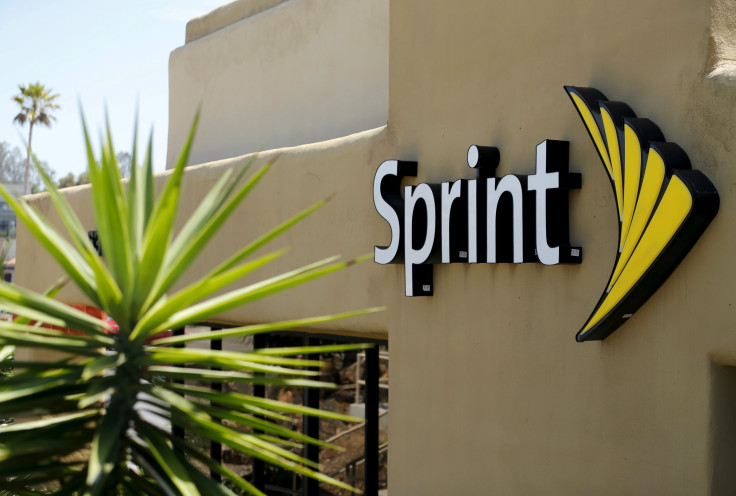The Future Of Sprint And T-Mobile's Merger Deal

This article originally appeared on the Motley Fool.
When Sprint (NYSE:S) pursued T-Mobile (NASDAQ:TMUS) back in 2014, it was the lead player in the deal that ultimately died due to opposition by federal regulators. Had a merger happened, Sprint would have controlled the combined entity and picked its top executive.
At the time, Sprint was the No. 3 carrier by subscriber total and T-Mobile (NASDAQ:TMUS) was in the early stages of its customer-friendly reinvention as "The Un-carrier." Now, less than three years later, T-Mobile has become the third-place carrier, pushing Sprint to fourth place. The company, which has been the fastest-growing player in the wireless space, just posted its fourth straight year of adding at least 1 million subscribers each quarter.
• Motley Fool Issues Rare Triple-Buy Alert
That change in fortunes has put T-Mobile in a commanding position, and Sprint's parent company, SoftBank (NASDAQOTH: SFTBF), clearly understands that. Its CEO, Masayoshi Son, made it clear in February that it was willing to have T-Mobile CEO John Legere run the combined company. Now, during a press conference reported on by Reuters on May 10, the SoftBank boss has basically declared that he is looking to sell the struggling wireless phone company.
Sprint wants a partner
Sprint may not have formally hung a "for sale" sign on its headquarters, but the CEO of its parent company might as well have. Son made it clear in his remarks that the fourth-place carrier was in play and that his first choice was for a deal with T-Mobile.
"Of all potential partners, T-Mobile is the one that would yield the most synergies, the most orthodox choice and we'd sincerely love to begin talks," he said, noting that he believed Republican control of the White House and Congress would improve the chances of a deal getting done.
On top of that plea for Legere to consider coming to the table, Son also said he was willing to discuss other deals for Sprint "if there were better offers," according to Reuters.
Merging with Sprint would, at least in theory, give T-Mobile a major influx of subscribers that would eventually allow it to lower costs. There would clearly be a difficult period of integrating the two company's networks, but if the deal happened and T-Mobile kept most of the combined subscribers, the merged company would be an equal with industry leaders AT&T (NYSE:T) and Verizon (NYSE:VZ).
• This Stock Could Be Like Buying Amazon in 1997
T-Mobile closed 2016 at 71.46 million subscribers while Sprint had 58.56 million, according to data compiled by Statista. That put the combined total of the two companies at 130.02 million, still below AT&T at 134.86 million and Verizon at 145.74 million.
Regulatory issues
It's worth noting that all of the talk of a potential revival of this deal has come from Sprint/SoftBank. T-Mobile executives have actually been mostly quiet on the subject, though CFO Braxton Carter did acknowledge in March that a merger makes sense for the company, though he made it clear that a cable provider was a more likely partner.
Part of Carter's logic for that was that past opposition by the Federal Communications Commission (FCC) and Federal Trade Commission (FTC) were unlikely to have changed. That, however, may not be the case as new FCC Commissioner Ajit Pai has clearly returned his agency to the pro-business ways it had abandoned under former boss Tom Wheeler. It's harder to know what the FTC would do, or what President Donald Trump's opinion would be, but it's fair to say that the Republicans controlling the White House and Congress would at least consider allowing the merger.
In addition, a recent deal between Comcast and Charter Communications has the two cable companies working together on their own wireless service. That could create another option for consumers that may lessen regulatory concerns about American consumers having less choice.
A merger between Sprint and T-Mobile seems possible, if T-Mobile wants it. That at least gives The Un-carrier leverage when it talks to other potential partners.
• 7 of 8 People Are Clueless About This Trillion-Dollar Market
T-Mobile is in an enviable position. It has been growing and posting impressive gains each quarter. A merger would help it accelerate that growth, or even extend its unique branding into new areas, but it's not something the company needs. That puts Legere and his board in a very strong position where he can make the best deal possible or pass if the offers are not good enough.
Daniel Kline has no position in any stocks mentioned. The Motley Fool owns shares of and recommends Verizon Communications. The Motley Fool recommends T-Mobile US. The Motley Fool has a disclosure policy.





















